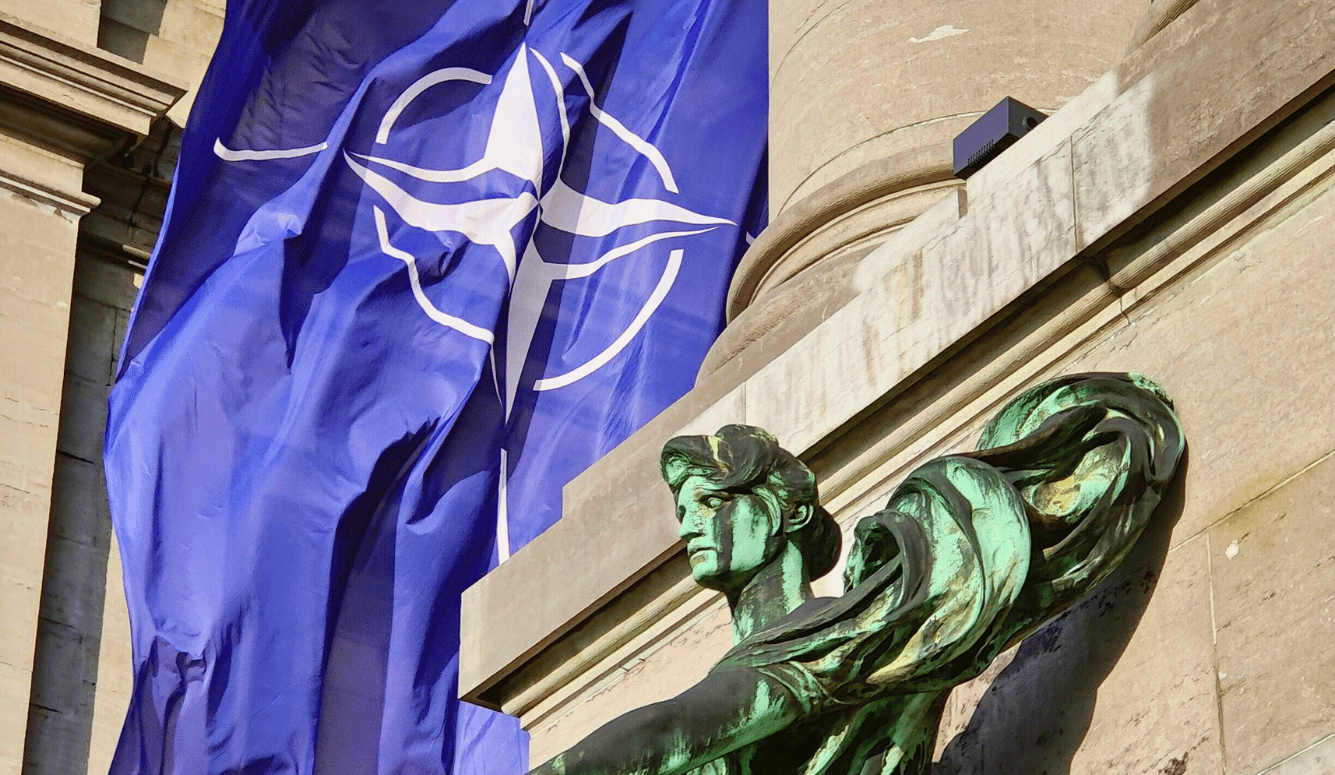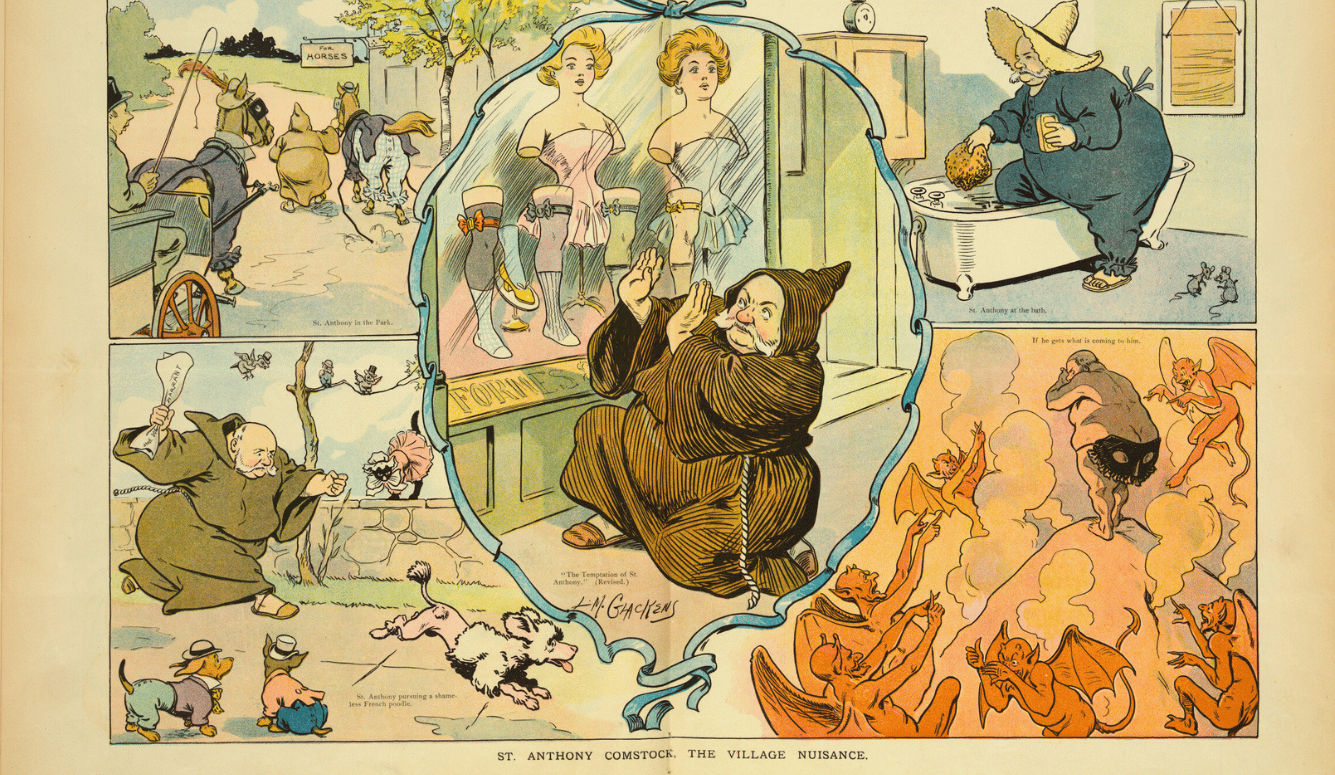Language
The Boy Who Inflated the Concept of 'Wolf'
Concept inflation is a lot like lying. Immanuel Kant observed that lying couldn’t be effective in a world where everybody lied, since no one would be believed.

One of Aesop’s fables is about a shepherd boy who, out of boredom, repeatedly cries “Wolf!” when no wolf is present. As a result, the villagers lose faith in his testimony, and no one listens to his warnings when a real wolf shows up to devour his flock. The story shows why it’s bad to lie and why it’s in our interest to be honest. But lying is not the only manipulation of language that degrades trust. Consider a slightly different story.
Suppose that instead of one shepherd boy, there are a few dozen. They are tired of the villagers dismissing their complaints about less threatening creatures like stray dogs and coyotes. One of them proposes a plan: they will start using the word “wolf” to refer to all menacing animals. They agree and the new usage catches on. For a while, the villagers are indeed more responsive to their complaints. The plan backfires, however, when a real wolf arrives and cries of “Wolf!” fail to trigger the alarm they once did.
What the boys in the story do with the word “wolf,” modern intellectuals do with words like “violence.” When ordinary people think of violence, they think of things like bombs exploding, gunfire, and brawls. Most dictionary definitions of “violence” mention physical harm or force. Academics, ignoring common usage, speak of “administrative violence,” “data violence,” “epistemic violence” and other heretofore unknown forms of violence. Philosopher Kristie Dotson defines the last of these as follows: “Epistemic violence in testimony is a refusal, intentional or unintentional, of an audience to communicatively reciprocate a linguistic exchange owing to pernicious ignorance.”1
What Dotson calls “epistemic violence” isn’t violence according to ordinary usage or the dictionary. If intellectuals can commandeer the word “violence,” then presumably they can do the same with stronger words. So why not call epistemic violence “epistemic rape”? Indeed, why not “epistemic genocide”? After all, genocide is destroying a people in whole or in part, and part of destroying a people is destroying its voice. Maybe that can be done through subtle acts of silencing. This is absurd, of course, but there’s no principled way to stop moves like this if we accept coinages like “epistemic violence.”
The word “gaslighting” has also been abused in this way. The term originated with Patrick Hamilton’s 1938 play, Gas Light, which was later adapted into movies in Britain and the United States, both named Gaslight. The plot centers around a woman who begins to lose her grip on reality because of her husband’s pathological lying. According to Dictionary.com, to “gaslight” someone is: “to cause (a person) to doubt his or her sanity through the use of psychological manipulation.” Gaslighting is characterized by pervasive, blatant lying. The perpetrator might confidently deny that the victim heard him say something that he clearly said moments ago.
Some intellectuals define “gaslighting” so loosely that it need not involve outright lying; this way, speech they dislike can be called “gaslighting.” Two professors of political science at Seattle University write: “Just as the process of white supremacy does not require those who are complicit to understand the racist nature of their actions, awareness is also not determinative of whether the process of racial gaslighting is taking place.”2 Examples of racial gaslighting, according to them, include dominant groups “tone policing” minorities who have every right to be angry about their oppression and—apparently—expressing any conservative opinion about race.3
Philosopher Rachel McKinnon also does this. After accurately describing how the word “gaslighting” entered the language and what it is usually taken to mean, she writes:
However, this isn’t the kind of gaslighting I am interested in for the purposes of this chapter. Instead, I’m interested in the more subtle form, often unintentional, where a listener doesn’t believe, or expresses doubts about, a speaker’s testimony. In this epistemic form of gaslighting, the listener of testimony [sic] expresses doubts about the speaker’s reliability at perceiving events accurately.4
McKinnon presents the following as a case of such “subtle” gaslighting. A trans woman, Victoria, thinks that James is deliberately failing to use her preferred pronouns, and pronounce her name correctly, in order to demean her. Her colleague, Susan, doubts this interpretation and suggests Victoria might be too emotional and primed to hear verbal slights (consistent with a stereotype about trans women). This denial of Victoria’s authoritative perspective supposedly renders Susan a gaslighter. Of course, since we all get things like this wrong, Susan might be doing the right thing by offering a different point of view. Even if Susan is misguided, her words are no more a subtle form of gaslighting than a wasp is a subtle form of wolf, or an insult is a subtle form of murder.

Because “gaslighting” is a label for a kind of bad behavior that has no other convenient designation, inflating this word’s meaning hampers our ability to communicate. Words that are abused in the way that “violence” and “gaslighting” are being abused cannot even be useful rhetorical tools for very long, since their negative associations depend upon the meanings they have prior to these manipulations. At some point, new words will need to be inflated to replace the uselessly inflated terms. Thus, semantic activists must continually comb the land in search of emotionally impactful words to be harvested, then left behind as desiccated semantic husks.
I will use the term concept inflation to describe what occurs when speakers loosen the usage of an emotionally impactful word in order to manipulate an audience.5 “Inflation” refers to the expansion of the number of things that a word refers to, but also suggests an analogy with currency inflation. When speakers expand the reference of a word in order to attach its associations to new things, they dilute the associations of the original word. Just as printing too much paper currency diminishes the value of the currency, concept inflation degrades the rhetorical effect of inflated words and phrases.
Concept inflation is a lot like lying. Immanuel Kant observed that lying couldn’t be effective in a world where everybody lied, since no one would be believed. Just as lying is parasitic on a truth norm, concept inflation is parasitic on norms of usage. In Lewis Carroll’s Through the Looking Glass, Humpty Dumpty tells Alice: “When I use a word, it means just what I choose it to mean—neither more nor less.”6 Humpty Dumpty is wrong, however; if people could define the meanings of words as they liked, language couldn’t be useful for transmitting ideas.
Not every revision to language that expands a word’s reference amounts to concept inflation. Suppose that in a stratified society only killing a noble person is called “murder.” Reformers who believe in the equal moral worth of nobles and peasants might start calling the unjustified killing of peasants “murder” too. Because the original word was artificially gerrymandered to begin with, the revision is principled and not manipulative. Nor does designating the unjustified killings of peasants “murders” diminish the crime of killing nobles in similar circumstances.
Genuine concept inflation isn’t always wrong, either. In the mid-twentieth century, British colonial authorities demanded that Burmese subjects call them by the title of respect, “Thakin.” The locals undermined their authority by calling everyone “Thakin” so the title lost its significance.7 In this case, the locals inflated the word “Thakin” because its positive associations were being used for morally bad ends. There are bound to be good faith disagreements about when concept inflation is morally justifiable, but there are also fairly clear-cut cases of scurrilous inflation like the cases of “violence” and “gaslighting.” Other conspicuous examples include “racism,” “sexism” and “colonialism.”
Implicit hyperbole is an abuse of language similar to concept inflation. It occurs when an emotionally loaded word is appropriated as a term of art. Although the speaker disavows the word’s commonsense meaning, the original word lends rhetorical force to the stipulated term. Implicit hyperbole is the mirror opposite of euphemism, the substitution of inoffensive or indirect language for something more disturbing—e.g., “neutralize the objective” in place of “kill.”
Just as euphemism can dull appropriate emotional responses to things like killing, implicit hyperbole is a strategy for activating disproportionate or unreasonable moral responses. An example is “erase/erasure” in phrases like “erasing female POC voices,” “erasing black people,” and “the erasure of black bodies.” When the Trump administration took the position that the word “sex” in federal civil rights laws meant “biological sex” and not “gender,” some activists accused them of attempting to “erase trans people.”8
Not incidentally, when I think of “erasing people,” I think of totalitarianism: secret police taking people away in the dead of night never to be heard from again, or an entire group of people being expunged through genocide. Trump’s edicts did none of this to trans people, of course. Nor do the people criticizing Trump’s “erasure” say otherwise; the terminology insinuates a connection with these atrocities they dare not make explicit. Presumably, they use the word “erase” as a term of art because of, not despite, its baggage. The real message is whispered to the subconscious, and never officially acknowledged.
This sort of messaging might be useful for firing up opposition to the president’s policies, but it manipulates the audience by attempting to bypass their rationality. In rhetoric like this, the primary function of words is to transmit emotion, not meaning. Terms are hollow, like linguistic Trojan horses intended to smuggle associations into the conscious mind’s periphery without the higher brain noticing the security breach. It is, moreover, disrespectful to victims of totalitarian atrocities to exploit our horror at these events for rhetorical advantages.
Effective communication requires truthfulness, which is more than not telling lies. Speakers must also say, or at least be willing to say, what they really mean. George Orwell wrote that “The great enemy of clear language is insincerity.”9 Implicit hyperbole requires insincerity. It can work only if the speaker’s primary message is not explicitly acknowledged. Both implicit hyperbole and concept inflation attempt to persuade not by presenting reasons, but by reshuffling the audience’s emotional associations. Both bend or break various norms of language for emotive effect. Both manipulate the audience, and make it harder for people to communicate.
Fortunately, we all have the means to combat the corruption of language. In a natural language, the community of speakers as a whole, not any central authority, is the ultimate arbiter of what is and what isn’t good speech. That is why Ingsoc, the totalitarian party that ruled Oceania in Orwell’s novel 1984, is so keen on replacing English with an engineered language, Newspeak. An ancient grammarian told Roman emperor Tiberius, “You, Cesar, have power to make a man a denizen of Rome, but not to make a word a denizen of the Roman language.”10 Tiberius may not have had this authority, but the community of Latin speakers of which he was a part did.
The shepherd boys in the modified version of Aesop’s fable could not have inflated the concept “wolf” without the acquiescence of the people in the village. They could have cried “Wolf!” but without a broader buy-in to the idea that “wolf” means “all threatening creatures” this would simply be a lie. That lie would have consequences—a few of the villagers would be temporarily deceived and all would eventually stop trusting the boys—but the damage would be localized. There would be no broader confusion in the language about what a “wolf” is.
We all have the responsibility to be good stewards of the languages we speak. We shape it when we decide to accept or reject new coinages or expressions. When we adopt new words that usefully label important things, like “gaslighting” in its original meaning, we improve the language. When we allow sloppy language to proliferate—for example, when we use the word “literally” to mean “metaphorically”—we degrade language and make it harder for everyone to communicate. This is analogous to polluting a common resource like the water or air.
If some way of using a word seems fishy, then take your own reaction seriously and make your concern known. Of course, your linguistic intuitions are no more authoritative than those of any other equally competent speaker. Such disagreement might indicate that a word’s meaning might be unsettled or vague. On the other hand, when the language seems very fishy, and the fishiness of the expression facilitates the speaker’s rhetorical goals, it’s reasonable to suspect sophistry. I’ve given several examples that seem to exhaust the principle of charity in this way. Faced with blatant abuses of language, we should be blunt: Damn your lies, that is no wolf!
Notes and References:
1 Dotson, Kristie. 2011. “Tracking Epistemic Violence, Tracking Practices of Silencing” Hypatia vol. 26, no. 2., p. 238.
2 Davis, Angelique M. and Rose Ernst. 2017. “Racial gaslighting,” Politics, Groups, and Identities vol. 0, no. 0., p 4-5.
3 Davis and Ernst write: “We define racial gaslighting as the political, social, economic and cultural process that perpetuates and normalizes a white supremacist reality through pathologizing those who resist. Just as racial formation rests on the creation of racial projects, racial gaslighting, as a process, relies on the production of particular narratives. These narratives are called racial spectacles…. Racial spectacles are narratives that obfuscate the existence of a white supremacist state power structure.” (2017, 3). This language assumes that there is white supremacist state power structure, so that anyone who denies it by attributing racial disparities to anything other than racism can be accused of this. Indeed, they go on to mention the “anti-affirmative action narrative” that started in the 1990s as an example.
4 McKinnon, Rachel. 2017. “Allies Behaving Badly: Gaslighting as a Form of Epistemic Injustice” in The Routledge Handbook of Epistemic Injustice, edited by Ian James Kidd, José Medina, and Gaile Pohlhaus, Jr. New York: Routledge, p. 168.
5 A related notion is “concept creep” which refers to the expansion of terms over time. This may not or may not be intentional. By concept inflation, I have in mind a rhetorical move that is intentional. Concept inflation contributes to concept creep, but not all concept creep is due to the deliberate inflation of concepts for rhetorical gain. Even if it isn’t intentional, concept creep can hamper our ability to communicate.
6 Carroll, Lewis, Through Looking Glass, chapter 6, Humpty Dumpty.
7 Steinberg, D. I., Aung-Thwin, M. A. and Aung, M. H. ‘Myanmar: The Emergence of Nationalism,’ in Encyclopedia Britannica Online, britannica.com/place/Myanmar/The-emergence-of-nationalism
8 See, for example, this article on the ACLU webpage.
9 Orwell, George. “Politics and the English Language” in A Collection of Essays by George Orwell. Harcourt Brace Jovanovich, Inc.: New York, 1953, p. 167.
10 Pomponius Marcellus, quoted in Essays on the Intellectual Powers of Man by Thomas Reid. Cambridge, Mass.: The MIT Press, 1969, p. 497.






